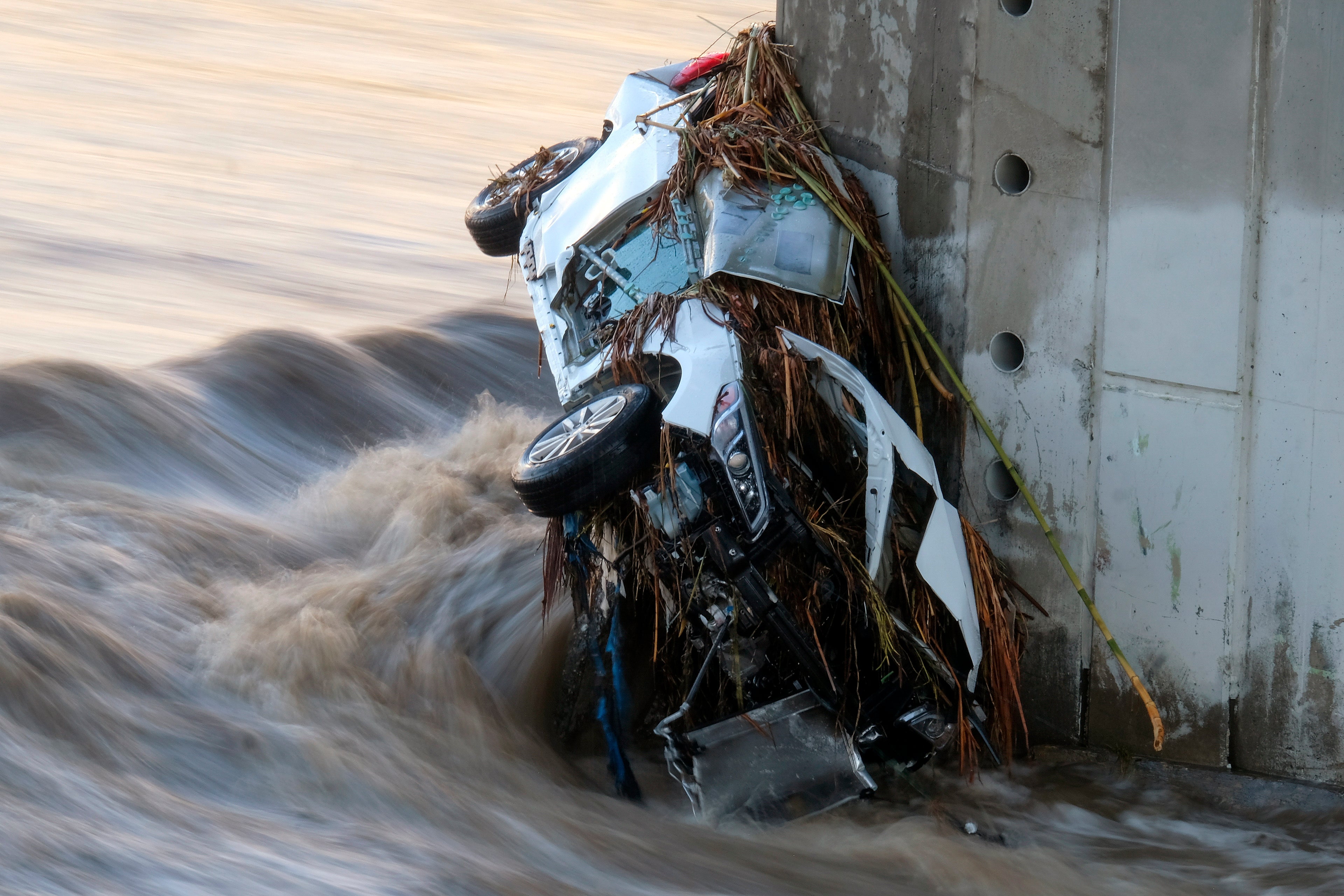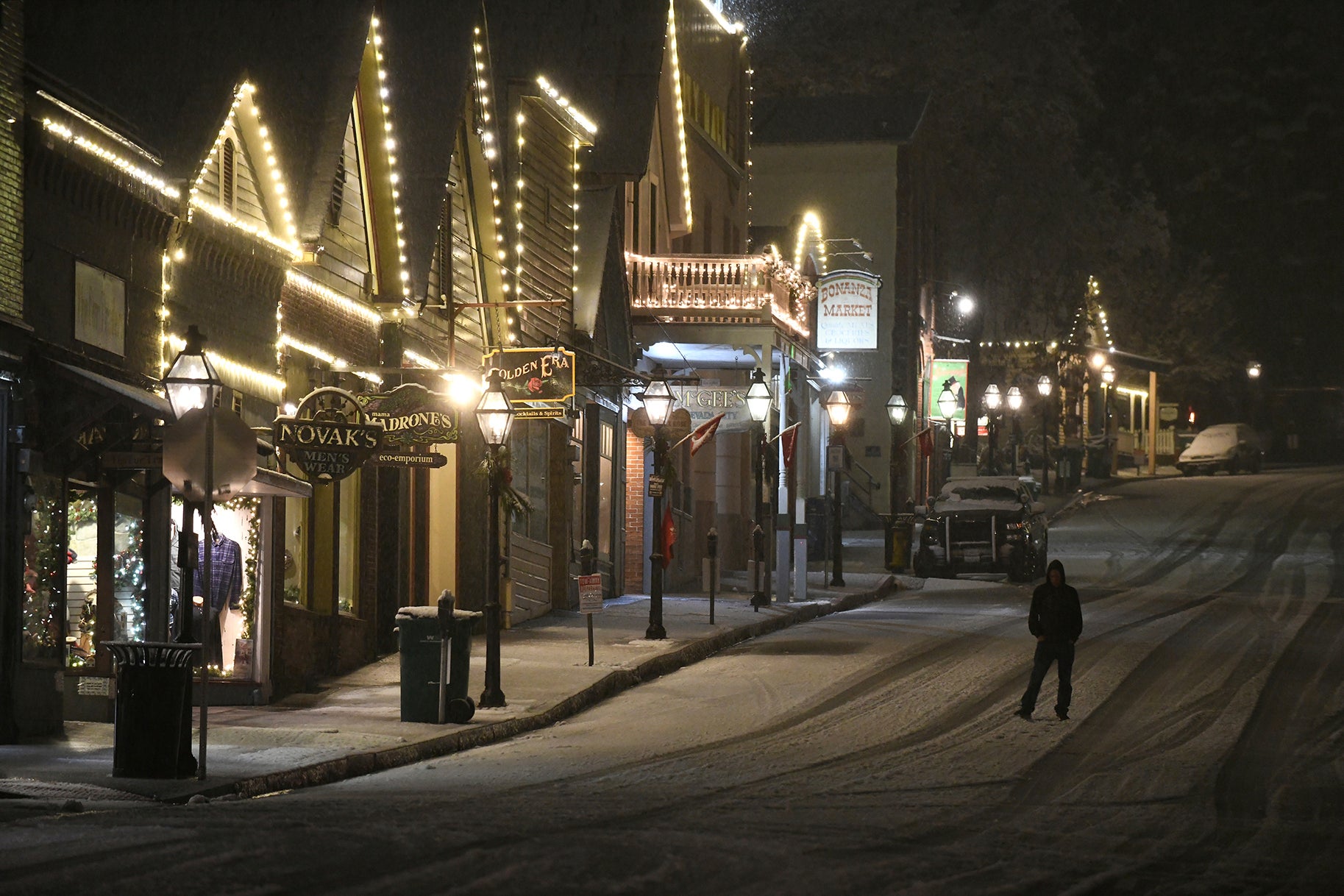Rivers of mud flow from wildfire burn scar through California homes after powerful storm
Properties in the Silverado Canyon area of Orange County, south of LA, inundated with dirt and debris
Your support helps us to tell the story
From reproductive rights to climate change to Big Tech, The Independent is on the ground when the story is developing. Whether it's investigating the financials of Elon Musk's pro-Trump PAC or producing our latest documentary, 'The A Word', which shines a light on the American women fighting for reproductive rights, we know how important it is to parse out the facts from the messaging.
At such a critical moment in US history, we need reporters on the ground. Your donation allows us to keep sending journalists to speak to both sides of the story.
The Independent is trusted by Americans across the entire political spectrum. And unlike many other quality news outlets, we choose not to lock Americans out of our reporting and analysis with paywalls. We believe quality journalism should be available to everyone, paid for by those who can afford it.
Your support makes all the difference.Rivers of mud flowed through homes in southern California on Tuesday after a powerful storm brought record levels of rain to the state.
Properties in the Silverado Canyon area of Orange County, south of Los Angeles, were inundated with dirt and debris. Mandatory evacuations were ordered along with nearby Williams and Modjeska canyons.
Orange County had been left with burn scars after the Bond Fire swept through nearly 7,000 acres in December 2020, incinerating trees and vegetation and leaving the land destabilized.
When Tuesday’s storm struck, there was little to hold back the steep land. Residents had attempted to protect their homes with hundreds of sandbags and hay bales but to little avail.
“It was like an ocean wave of mud,” one resident in Silverado Canyon told NBC4.
Last year saw a record-breaking number of wildfires in California, and 2021 has also seen monster blazes that are being driven by hotter, drier conditions linked to the climate crisis.
The storm brought record rainfall to parts of California at a time when much of the state remains in extreme and exceptional drought conditions.
More than 4.6 inches of rain fell within 24 hours in Silverado Canyon. Officials said that while some residents had to be rescued, no one was injured.
Around 11 inches fell in three days just north of San Francisco, the National Weather Service reported.
In downtown LA, several vehicles were found submerged in the fast-flowing Los Angeles River, including one which had crumpled against a bridge pillar. Firefighters were unable to investigate further until the surging water levels declined.

The severe weather led to multiple road collisions and sections of major routes were temporarily closed in southern California. Some 40 miles of the picturesque Highway 1, which hugs the Big Sur coastline, was closed due to rock slides after it got 12 inches of rain in 24 hours.
The powerful weather system is known as an “atmospheric river”, gathering up moisture from the Pacific Ocean and deluging low-lying areas and bringing snow to the mountains.
Up to eight feet of snow could be expected overnight on Tuesday at high elevations in the central Sierra Nevada mountain range, AccuWeather reported.
Avalanche warnings were in effect in the Mono and Inyo county areas of California’s eastern Sierra, where Mammoth Mountain got about four feet of snow.

It was too soon to know how much of a dent the rain would make in the state’s drought. The system built on the progress of a massive rain storm in October, particularly in Northern California, said Michael Anderson, the state climatologist. Heavy rains moistened the ground, which will ensure more water stays packed in the snow, he said.
Last year, the mountain snowpack lost a lot of moisture into the ground because it was so dry, he said.
December, January and February are typically the wettest months of the year in California; about half of the state’s annual precipitation falls in that window, he said. If storms don’t continue through the winter, the effect of this storm on the drought will be “muted,” Anderson said.
Any moisture is much-needed in the broader region that’s been gripped by drought that scientists have said is caused by climate change.
The latest U.S. drought monitor shows parts of Montana, Oregon, California, Nevada, and Utah are classified as being in exceptional drought, which is the worst category.
AP contributed to this report

Join our commenting forum
Join thought-provoking conversations, follow other Independent readers and see their replies
Comments